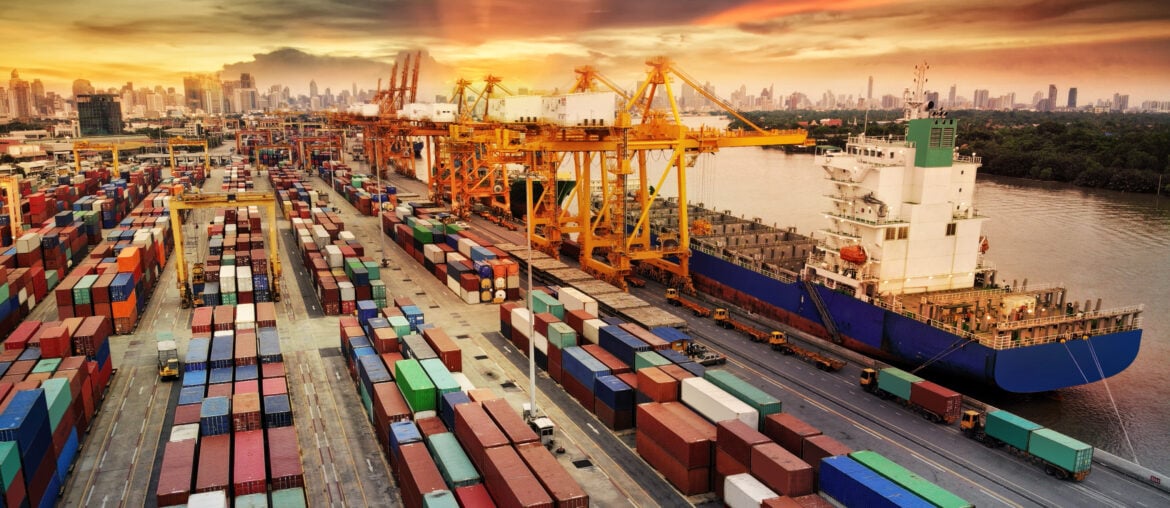Today, companies must navigate intertwining ESG compliance requirements in their supply chains spanning across: – Supply chain transparency and due diligence requirements – Trade and import bans – Investigation and litigation risks, and – Reputational and brand risks In the latest webinar as part of our “2022 International Supply Chain Series”, Kerry Contini (Partner, Washington DC) , Nicolai Behr (Partner, Munich) Kevin Coon (Partner, Toronto), Reagan Demas (Partner, Washington DC), Sean Selleck (Partner, Melbourne) and…
The Annual Compliance Conference begins next week and attracts over 6,000 in-house senior legal and compliance professionals from across the world. This leading compliance conference will be held across five weeks from 6 September – 6 October 2022 We will be virtually delivering our cutting-edge insights and guidance on key global compliance, investigations and ethics issues. Our global experts will provide practical insights and analysis on significant developments:• anti-bribery• corruption and economic crime• customs and FTAs• ESG, supply chain…
Recently, the U.S. Securities and Exchange Commission (“SEC”) Division of Corporation Finance issued a sample letter advising companies on their potential need to disclose direct and indirect impact of Russia’s invasion of Ukraine and the related international response on their operations. Sample letters generally do not create any new legal obligations; instead, they signal the areas of potential scrutiny by the SEC and illustrate the types of risks the SEC may view as material. Therefore,…
This week Florida’s two senators, Marco Rubio and Rick Scott, introduced a bill imposing several China specific public disclosure obligations, including disclosures related to sourcing activities related to products utilizing forced labor from Xinjiang, China (“the Bill”). The Bill would apply to all publicly traded companies and supplements the proposed SEC environmental, social and governance (“ESG”) disclosures, discussed here, and the Uyghur Forced Labor Prevention Act (“UFLPA”), which will come into effect in June 2022…
The SEC’s recently released (and long-awaited) proposed rule changes that will require disclosure of climate-related risks (“the Proposed Rule”) are likely to have significant supply chain implications. The Proposed Rule would require listed companies to disclose information on climate-related risks and Greenhouse gas (“GHG”) emissions; as explained below, both of these disclosure categories include data related to corporate supply chains, and thus the Proposed Rule would essentially require public companies to obtain and analyze climate…
On Monday the SEC released its long-awaited proposed rule changes that will require disclosure of climate-related risks that are reasonably likely to have a material impact on registrants. As noted in its press release, the SEC has focused on climate-specific rules in order to “provide investors with consistent, comparable and decision-useful information for making their investment decisions.” In sum, the Proposed Rule would require listed companies to disclose information in four key areas: (1) governance…
In a sign that Congress continues to pursue bipartisan efforts to combat the use of forced labor in supply chains, Senators Josh Hawley (R-MO) and Kirsten Gillibrand (D-NY) have reintroduced the Slave-Free Business Certification Act of 2022 (“the Act”). The Act is substantively similar to a July 2020 bill, which we have previously discussed on our blog. The Act would impose significant new compliance and disclosure requirements for many companies, requiring businesses with annual, worldwide…
Baker McKenzie is pleased to launch the fourth in our Biden Supply Chain Policy video series focused on the critical minerals and strategic materials supply chain, which is another of the critical supply chains that has been a particular focus of the Biden Administration. This supply chain includes lithium, cobalt and other rare earths and minerals that are the building blocks of products used every day. The Biden Administration has been pursuing policies aimed at…
In a step that would significantly elevate obligations to map supply chains, disclose information identified, and impose financial penalties for companies who fail to comply, the New York State Senate this month unveiled the “Fashion Sustainability and Social Accountability Act” (“the Act”). The Act, if enacted, will require every fashion retail seller and manufacturer that does business in New York and has over USD 100 million in annual worldwide gross receipts to make a number…
Baker McKenzie Partner Reagan Demas will speak on global supply chain compliance risks and other legal hurdles luxury businesses could face in the year ahead during a complimentary webinar hosted by Positive Luxury on Thursday, January 13 at 10:00 AM EST. For additional details or to register, please click here.









